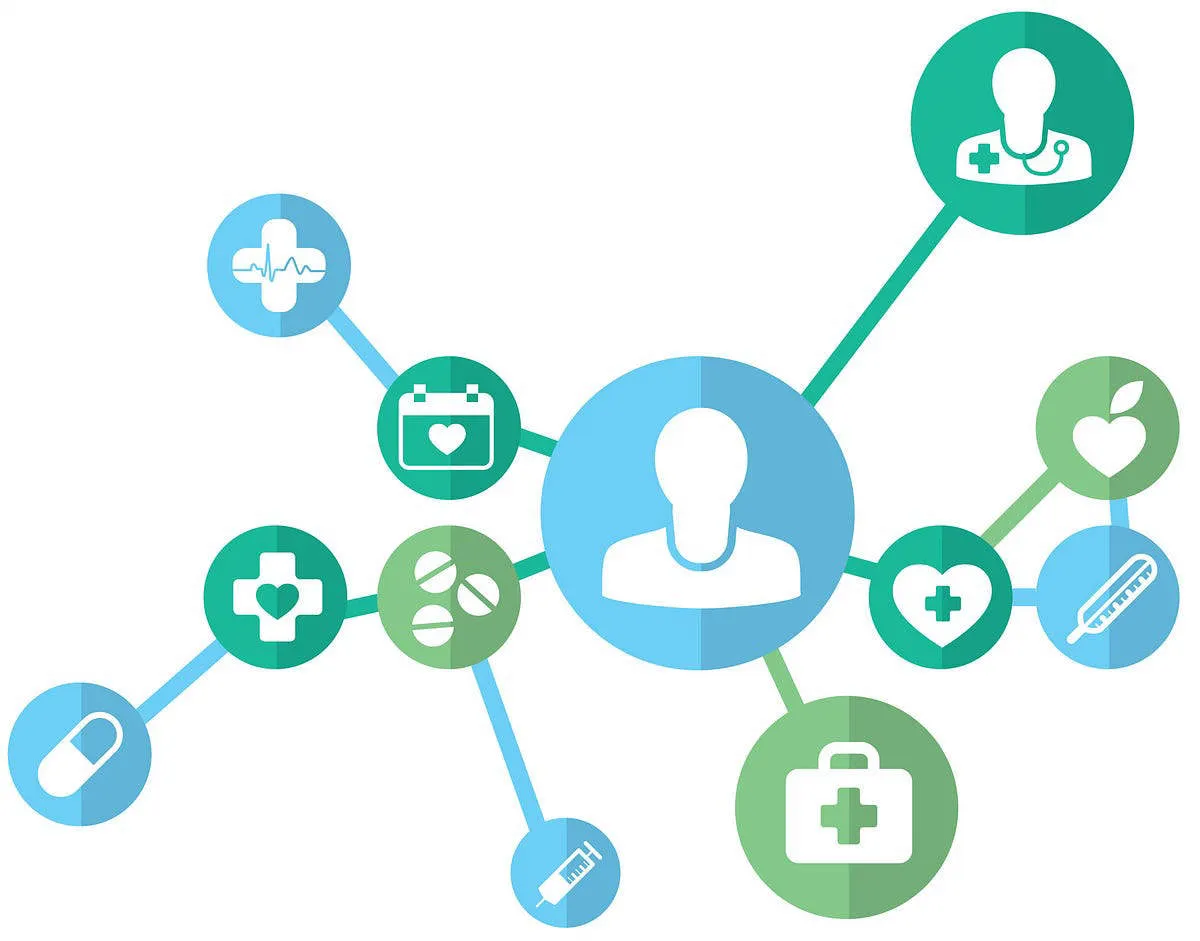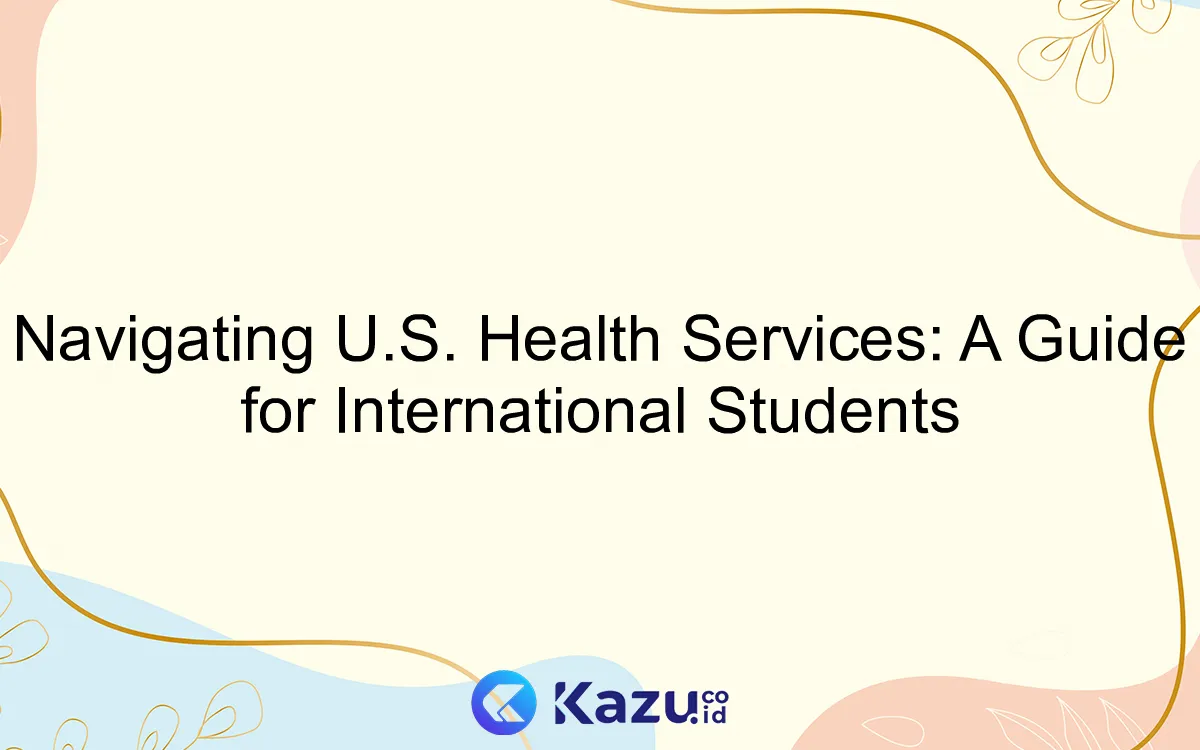If you are an international student planning to study in the United States, understanding the U.S. health services system is essential. This guide will navigate you through the various aspects of U.S. healthcare, including insurance options, accessing medical care, and important tips for maintaining your well-being while studying abroad.
Overview of U.S. Health Insurance for International Students
When it comes to studying in the United States as an international student, understanding the healthcare system is crucial. One important aspect to consider is health insurance coverage.
Most universities require international students to have health insurance during their studies. This is because medical expenses in the U.S. can be extremely high, and having insurance helps protect students from financial burden in case of any medical emergencies or routine healthcare needs.
There are generally two types of health insurance available for international students in the U.S.: university-sponsored plans and private plans. University-sponsored plans are offered by the educational institution itself, while private plans can be obtained from insurance companies.
University-sponsored plans are often comprehensive and tailored specifically for international students. They typically provide coverage for both on-campus and off-campus medical services, including doctor visits, hospitalization, prescription drugs, and emergency care. These plans may also have added benefits such as mental health services and access to campus health centers.
Private plans, on the other hand, offer more flexibility in terms of coverage options. Students have the freedom to choose plans that suit their specific needs and budgets. However, it’s important to carefully review the coverage details and ensure that the plan meets the university’s requirements.
Regardless of the type of insurance chosen, international students should familiarize themselves with the terms and conditions, including deductibles, copayments, and coverage limits. It is essential to understand the extent of coverage and any limitations that may apply.
In conclusion, having health insurance is essential for international students studying in the U.S. It provides vital financial protection and peace of mind during their academic journey. It is recommended for students to research and compare different insurance options available to ensure they make an informed decision that meets their healthcare needs.
Understanding the U.S. Healthcare System – Key Terminologies

In order to navigate the U.S. healthcare system effectively, it is essential to familiarize yourself with key terminologies. Here are some terms you need to know:
-
Health Insurance
A contract between an individual and an insurance company that provides coverage for medical expenses, prescriptions, and preventive care.
-
Primary Care Physician (PCP)
A healthcare professional who serves as the main point of contact for all of your medical needs. They provide preventive care, diagnose and treat common illnesses, and refer you to specialists if needed.
-
Copayment
A fixed amount that you pay out of pocket for certain medical services or prescriptions.
-
Deductible
The amount you need to pay out of pocket before your insurance starts to cover your medical expenses.
-
Out-of-Pocket Maximum
The maximum amount you have to pay for covered medical services in a plan year. Once you reach this limit, your insurance will cover 100% of the costs.
-
Specialist
A healthcare provider who focuses on a specific area of medicine or a particular condition, such as a cardiologist, dermatologist, or orthopedic surgeon.
-
In-Network vs. Out-of-Network
In-network providers have negotiated discounted rates with your insurance company, whereas out-of-network providers do not. It is generally more affordable to visit in-network providers.
-
Preventive Care
Health services, like vaccinations and screenings, that are aimed at preventing illnesses and detecting potential health problems at an early stage.
Accessing Health Services and Finding Providers
When it comes to navigating health services in the United States as an international student, it is important to be aware of the resources available and how to find suitable healthcare providers. Below are some essential tips:
1. Familiarize Yourself with Campus Health Resources
Most universities have health centers on campus that offer basic medical services to students. These resources may include general health check-ups, treatment for minor illnesses and injuries, vaccinations, and access to mental health support. Make sure you know the location and hours of your campus health center.
2. Understand Your Health Insurance Coverage
International students in the U.S. are often required to have health insurance. Familiarize yourself with the details of your insurance plan, including the coverage, network of providers, and any costs or deductibles you may need to pay. Keep your insurance card with you at all times.
3. Utilize Online Directories
There are many online directories that can help you find doctors, hospitals, and clinics in your area. Websites like Healthgrades, Zocdoc, and the American Medical Association’s Doctor Finder allow you to search for healthcare providers by location, specialty, and patient reviews.
4. Seek Recommendations
Ask for recommendations from fellow international students, campus staff, or local community members. They can provide insights into good healthcare providers who are experienced in working with international students and familiar with cultural differences in healthcare practices.
5. Contact Your Insurance Provider
If you already have health insurance, reach out to your insurance provider for a list of in-network healthcare providers. This will ensure that you receive the maximum benefits from your insurance plan and minimize out-of-pocket expenses.
6. Schedule Regular Check-ups
Prevention is key to maintaining good health. Make it a priority to schedule regular check-ups with a primary care physician. They can monitor your overall health, offer preventive care, and refer you to specialists if needed.
Remember, obtaining timely and quality healthcare is essential for your well-being as an international student. By understanding the available resources and following these tips, you can successfully access health services and find providers that meet your needs.
Conclusion
In conclusion, international students in the United States should familiarize themselves with the U.S. healthcare system to ensure access to quality services. By understanding insurance options, finding a primary care provider, and knowing how to navigate emergency services, international students can effectively manage their health and well-being during their time in the U.S.
